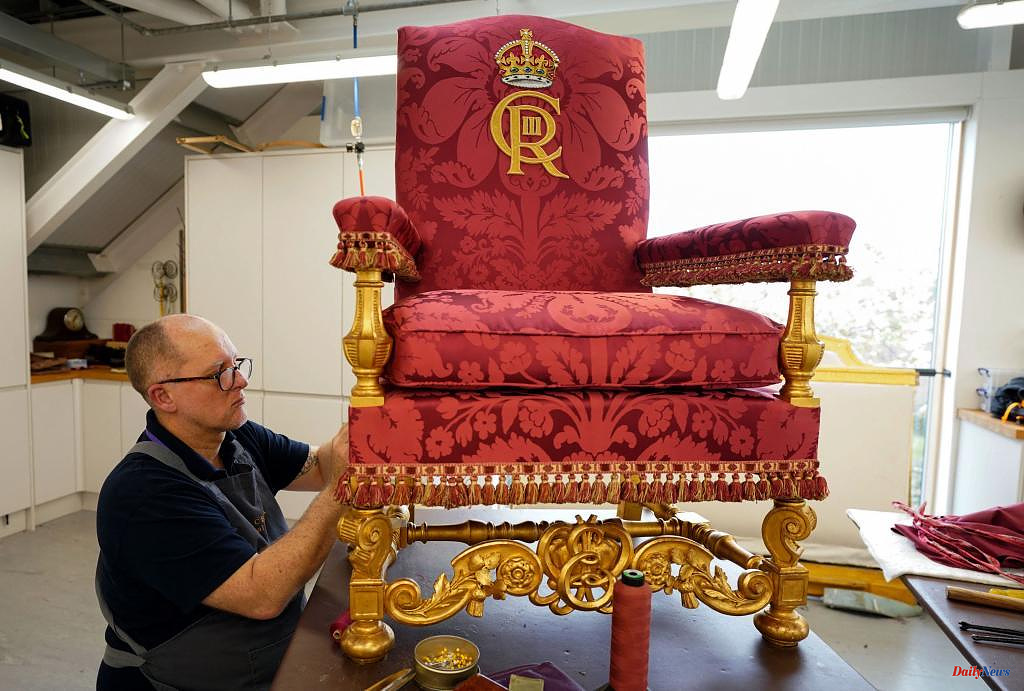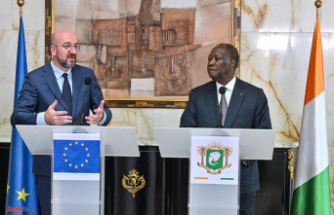Among the sacrosanct traditions that will surround Carlos III at the coronation on May 6th, an outstanding novelty stands out this time: millions of Britons will be invited that day to swear allegiance to the monarch, a privilege until now reserved for lords and aristocrats.
In the final stretch of the pompous ceremony, the Archbishop of Canterbury Justin Welby will lead the so-called tribute of the people and will incite his countrymen to proclaim with him: "I swear that I will pay true allegiance to your Majesty, your heirs and successors according to the law. With God's help."
"It will be an invitation, rather than a requirement or an expectation," said a spokesman for Lambeth Palace, the official residence of the Archbishop of Canterbury. "It is simply an opportunity for the people to join in the words that will be heard in Westminster Abbey. Some will want to take part, others may take it as a moment of reflection and others may save it for last and just say! God save the king!".
The invitation will be extended to the citizens of the other 14 countries that recognize the King as head of state (Australia, Canada, New Zealand, Jamaica, Bahamas, among others), perhaps with the hope of appeasing the Republican rebellion that took hold in Barbados in 2021 and which threatens to spread throughout the Commonwealth of Nations.
In the United Kingdom, meanwhile, the oath of allegiance announced over the weekend by Lambeth Palace has provoked heated protests from Republicans, who consider it "an offensive, out-of-touch and derogatory gesture" towards those who question the Monarchy.
"In a democracy, it is the head of state who swears allegiance to the people, and not the other way around," said Graham Smith, head of the Republic group, which claims to have more than 130,000 active members. "Swearing allegiance to Charles and his heirs and successors means swearing allegiance to Prince Andrew."
Smith believes that the string of scandals and the succession to the throne have created "fertile ground" for supporters of the republic, who reach 26% of the population (according to the latest survey by the National Center for Social Research, NatCen). "Support is close to 40% among young people and the trend is increasing," he warns. "The tipping point will occur when the popularity of the institution falls below 50%."
However, 58% of the British still prefer a king or queen to an elected head of state, according to the NatCen survey, which reveals, however, that the monarchy is "very important" to only 29% of the population. population and only for 12% of young people between 18 and 24 years of age.
"I would say that the Monarchy enthusiasts at this point remain at 9%," says Graham Smith. "There is a concerted effort on the part of the conservative media and television to make us believe that the whole country is going to take to the streets these days, when the general feeling is very different."
"It's hard to believe that in the midst of the cost of living crisis, when millions of Britons are struggling to pay their bills and shop, more than £100m can be spent on one man and in a single day," Smith lashes out at the cost of the coronation.
A thousand Republic supporters hope to gather in Trafalgar Square on May 6, with the permission of the police, to display their banners and shout as the procession passes: "Not my king" (not my king). Despite reports in The Daily Mail about possible acts of sabotage of the parade by launching attacks on the horses, Smith assures that the protest will be peaceful and not intended to cause further disruption. The most used strategy to date by the Republicans against King Carlos has been the throwing of eggs.
The news about the loyalty oath has in any case reactivated the Republic campaign and has given rise to criticism from the left, such as the one launched in The Guardian by Baroness Jenny Jones, former candidate for London mayor for the Green Party: "Making us recite an oath seems a rather strange requirement, when many of us think the monarchy is outdated and in need of drastic overhaul. The king is rich enough to pay for his own coronation and not pass the bill to the taxpayers."
According to the criteria of The Trust Project












